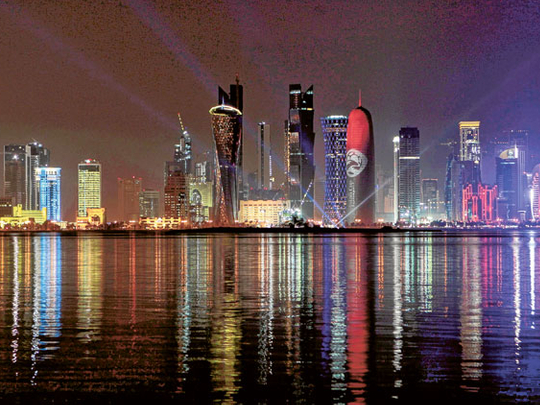
The recently released Global Competitiveness Report 2011-2012 confirms continued success of at least some Gulf Cooperation Council (GCC) economies in sustaining progress of competitiveness of their global rankings. Qatar and Saudi Arabia made headway in the rankingsof their economies. Bahrain maintained its earlier ranking. However, the UAE, Oman and Kuwait saw their rankings plummet among the 142 economies ranked in the latest report.
The World Economic Forum (WEF) publishes the annual which ranks reviewed economies on the basis of their performance on the Global Competitiveness Index (GCI). In reality, GCI is noted for taking a comprehensive look into reviewed economies by relying on a set of variables.
More specifically, the index ranks economies on the basis of their achievement on three broad categories, namely basic requirements, efficiency enhancers and innovation and sophistication factors. In turn, the basic requirements category is subdivided into institutions, infrastructure, macroeconomic stability, health and primary education. Still, the efficiency enhancers category comprises higher education and training, goods and market efficiency, labour market efficiency, financial market sophistication, technological readiness and market size. Yet the innovation and sophistication factors category is made up of business sophistication and innovation.
Seven points
The three categories of basic requirements, efficiency enhancers and innovation and sophistication factors are brought together in the formation of GCI, which comprises a maximum seven points.
The index is developed by using publicly available data and WEF's own opinion surveys. Hundreds of business leaders are polled for the purpose of gathering data for the report.
The report ranks Qatar the 14th most competitive economy in the world, the best within the GCC, Arab and Middle East and North Africa region. The achievement partly reflects budgetary surpluses, in turn allowing for the absence of debt, hence macroeconomic stability.
In fact, only last week, Qatari authorities increased the salaries and allowances granted to nationals working in civil and military establishments by 60 per cent and 120 per cent, respectively. Undoubtedly, thise increase adds to the wealth of Qatari nationals, who interestingly enough are already regarded as the wealthiest in the world. According to the IMF, per capita income in Qatar stands at about $90,000, second to none.
With its abundant oil and gas resources, Qatar has benefited substantially from firm energy prices of the recent past. In fact, Qatar is the largest exporter of liquefied natural gas (LNG) in the world. Output capacity stands at 77 million tonnes. Qatar managed to expand its gas business through joint production agreements with international oil firms.
Focus on education
Of all GCC countries, Saudi Arabia made the biggest stride in the competitiveness index, with its ranking rising by four notches to No. 17 worldwide. The Saudi advancement partly reflects government determination for spending on education and training. Saudi Arabia's ninth development plan, covering the period 2010 to 2014, released last year, calls for developing 25 technical colleges and fitting many other institutes with latest technological means. Other schemes include opening some 117 hospitals and a number of clinics.
The GCI rankings suggest all GCC countries have room to improve their positions with particular attention paid to education and training and economic integration. In fact, a key drawback for several GCC countries like Bahrain and to some extend Oman relates to limited market size.
Yet, integrating GCC economies via the Gulf Common Market (GCM) scheme should serve the cause of all member countries. Commenced in January 2008, the GCM calls for free flow of factors of production amongst member states. In practice, the GCM focuses on finding a unified regional market through which nationals can benefit from opportunities available in regional economies.
The writer is a Member of Parliament in Bahrain.












